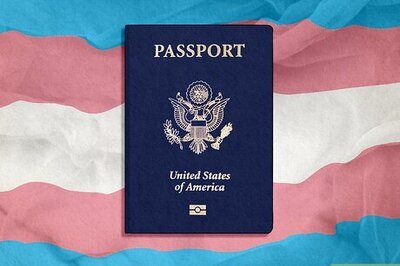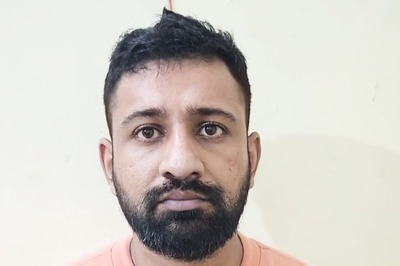
views
JOHANNESBURG: Ethiopias largest ethnic group, the Oromo, on Saturday celebrated the annual Thanksgiving festival of Irreecha amid tight security and a significantly smaller crowd due to political tensions and the COVID-19 pandemic.
Hundreds of people were arrested ahead of the festival, some accused by authorities of plotting terror attacks and a new wave of unrest.
Wearing face masks and white clothes stitched with the colors of the Oromia regions flag, people in downtown Addis Ababa were subjected to at least six security checks complete with body searches and, in some areas, sniffer dogs.
I dont know the kind of information they have but these security checks are too much, said Hassen, a participant who gave only his first name, fearing for his safety. Added with the COVID-19, it really has ruined the festive mood.
The festival usually attracts hundreds of thousands of people, but only a few thousand were allowed to attend this year.
More than 500 people were arrested on suspicion of plotting to disrupt the festival, the Oromia police commission said Thursday. On the same day, the National Intelligence and Security Service said it had arrested people suspected of planning to carry out terror attacks and cause unrest at the celebrations in Addis Ababa and nearby Bishoftu, adding that 10 Kalashnikovs were seized.
People travelling to the capital from other regions were banned from entering the city, multiple sources told The Associated Press. Officials said they were carrying out strict security checks but did not confirm the ban.
Notably, people carrying the Oromo Liberation Front and Oromo Federalist Congress party flags were absent in this years festival. Some of the parties leaders are behind bars for alleged involvement in the deadly unrest that followed the killing of popular Oromo singer Hachalu Hundessa in June. On Friday, an Ethiopian court charged four people suspected in the killing, which led to turmoil that saw more than 180 people and thousands arrested.
The Oromo, while the countrys largest ethnic group, traditionally have expressed frustration over perceived marginalization. Prime Minister Abiy Ahmed is the countrys first Oromo leader, but he faces growing criticism by some Oromo that he hasnt done enough for them.
The Irreecha festival marks the end of the rainy season and the start of the harvest. It has seen violence in the past.
During the 2016 celebration in Bishoftu, a town 40 kilometers from the capital, several dozen people were crushed to death in a stampede after police fired tear gas and rubber bullets to disperse anti-government protesters.
Amid a pandemic, reasonable restrictions on public gatherings may be justified. But with tensions already high, expressions of dissent and resistance to government directives may be expected. The government should show it has learned lessons from its recent responses to demonstrations and the events of 2016 by ensuring security forces exercise restraint and allowing gatherers to celebrate safely, tweeted Laetitia Bader, Horn of Africa director for Human Rights Watch.
Disclaimer: This post has been auto-published from an agency feed without any modifications to the text and has not been reviewed by an editor



















Comments
0 comment